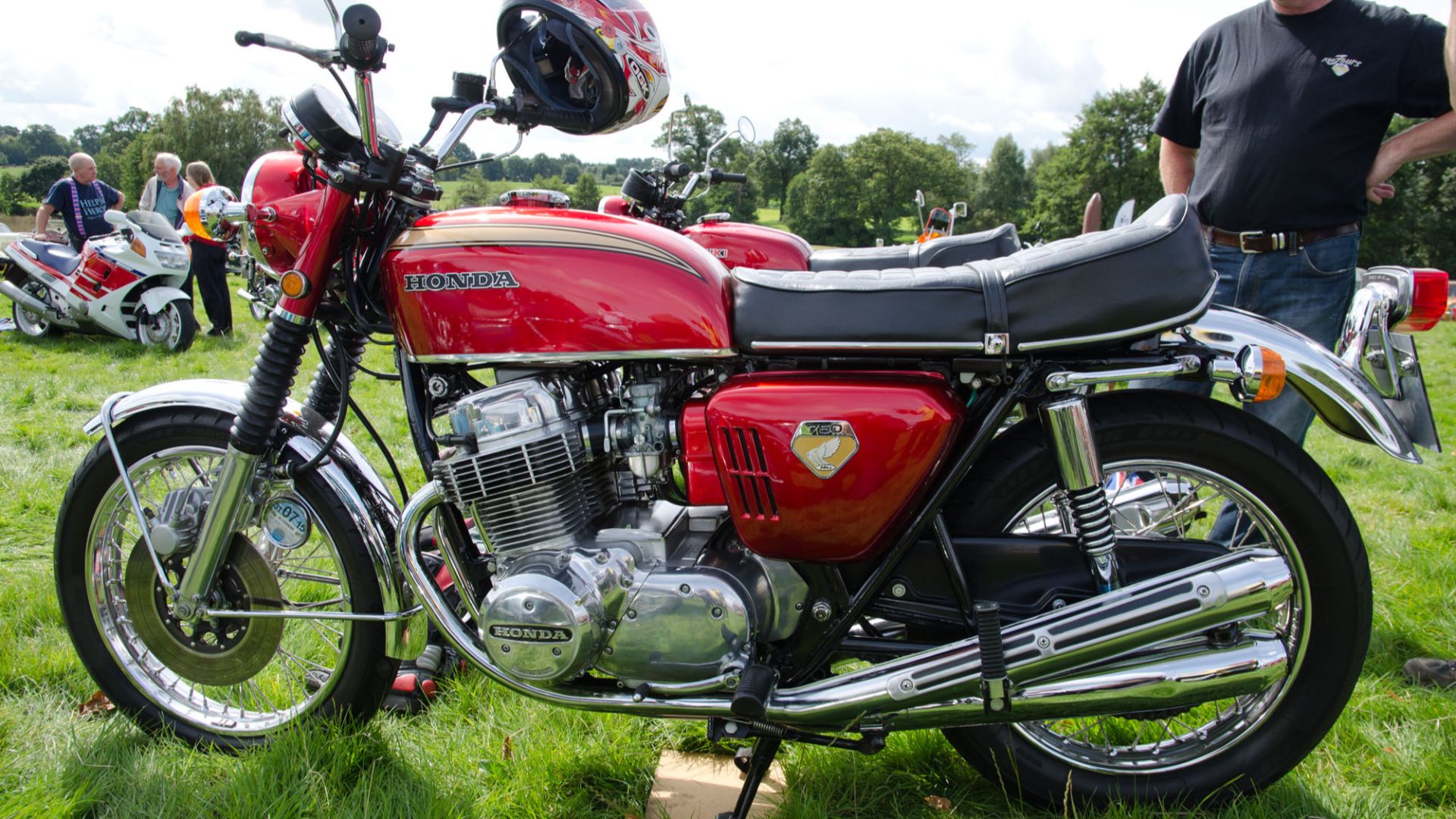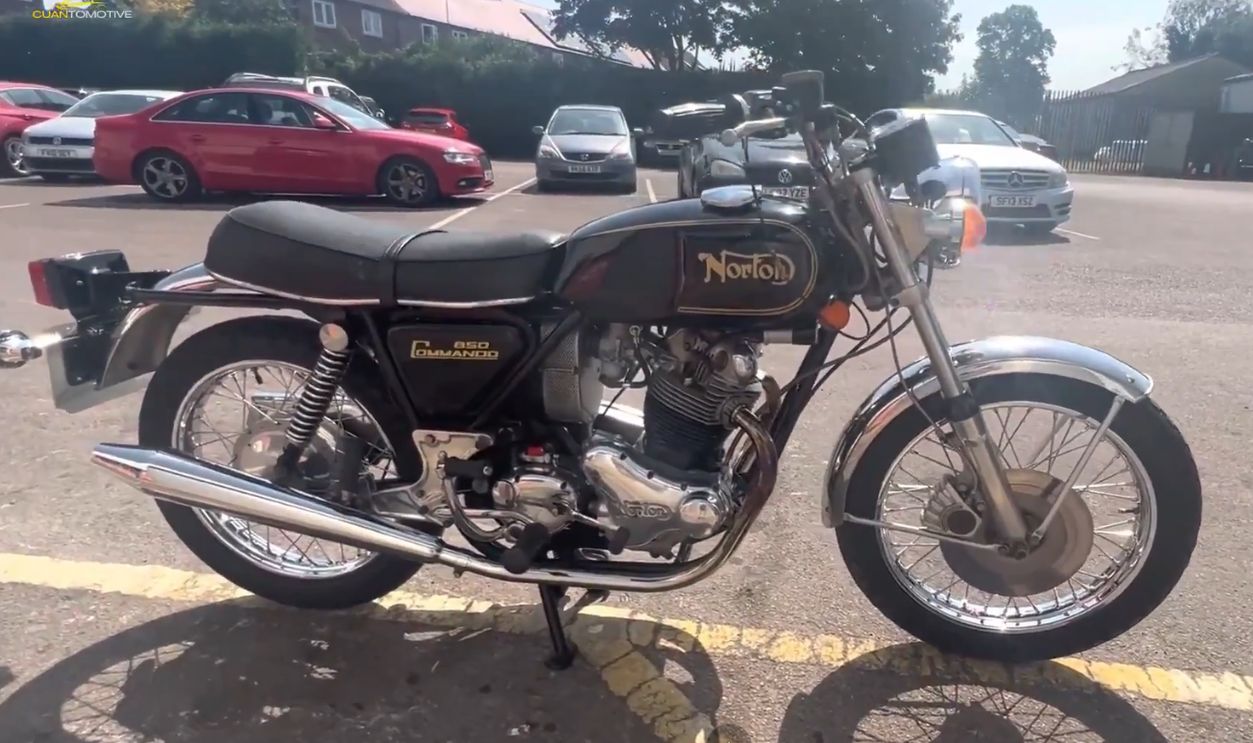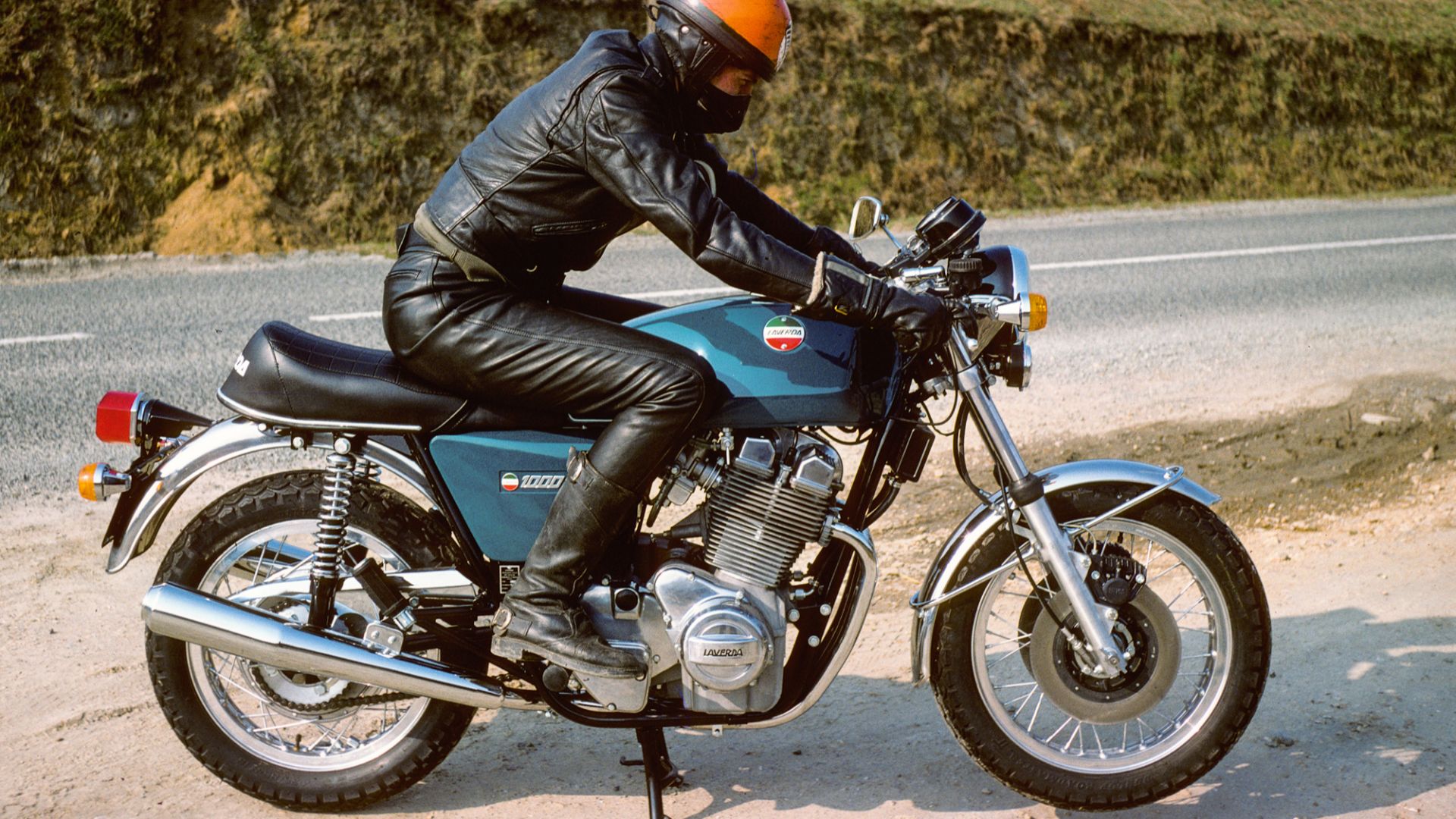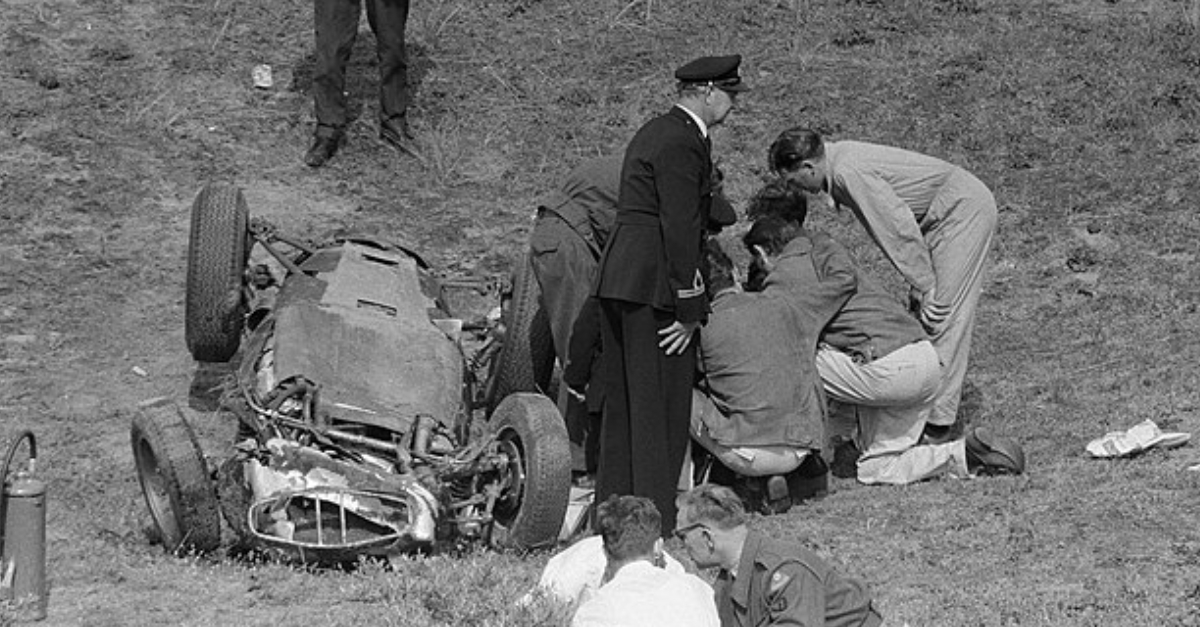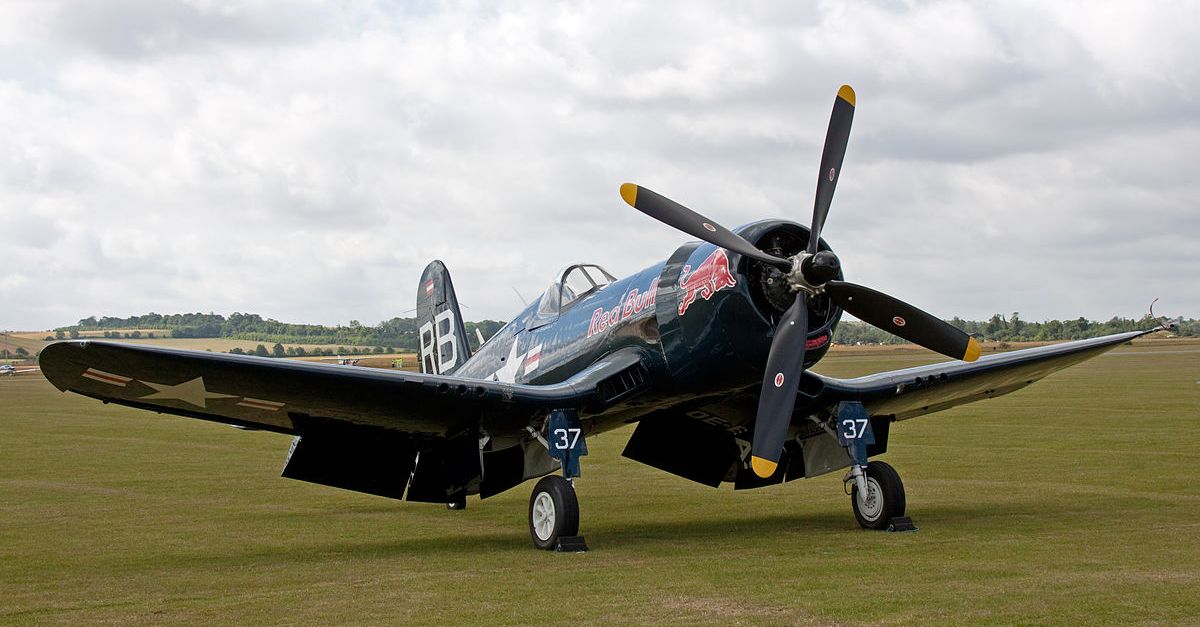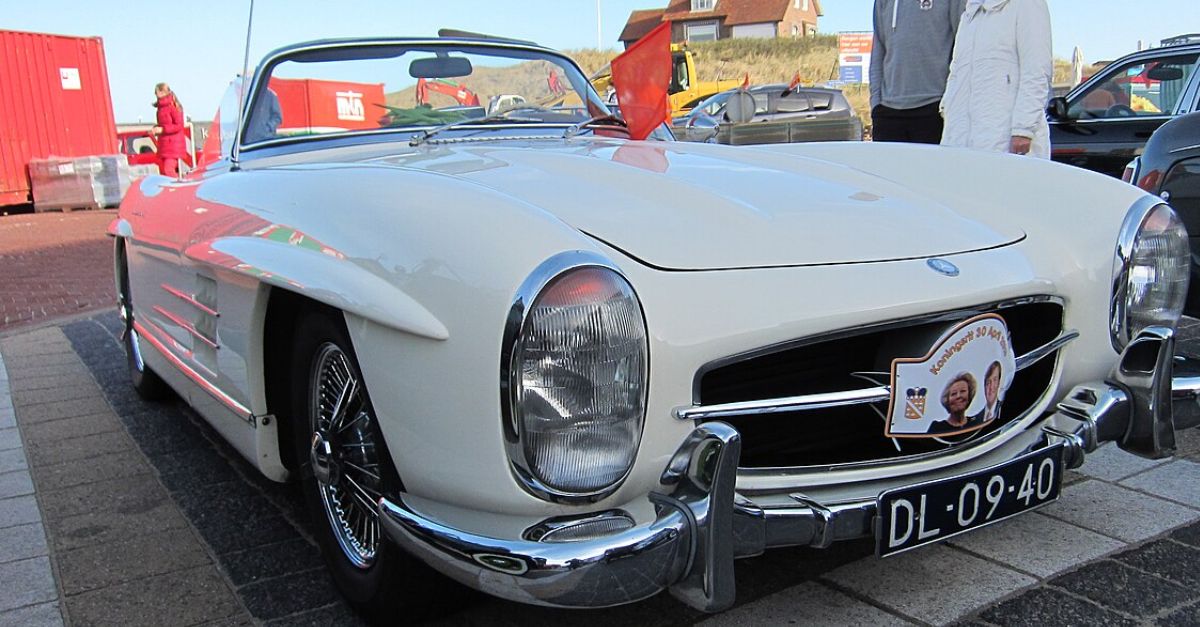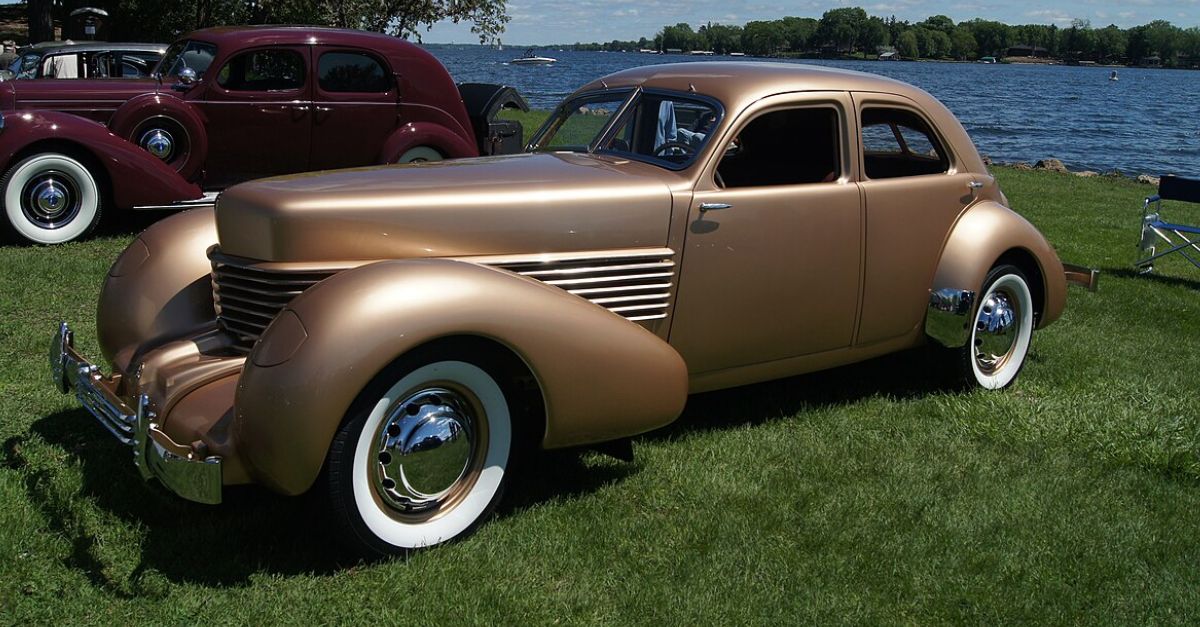Two-Wheels, Big Attitude
The 1970s were riding time: wild styling, big engines, innovation at every turn, and a hunger for speed that shook the streets. From Japanese super-bikes to European performance machines and American cruisers, these 20 motorcycles didn’t just roll off the production line, they defined an era. Hop on, rev the throttle, and let’s cruise through the legends.
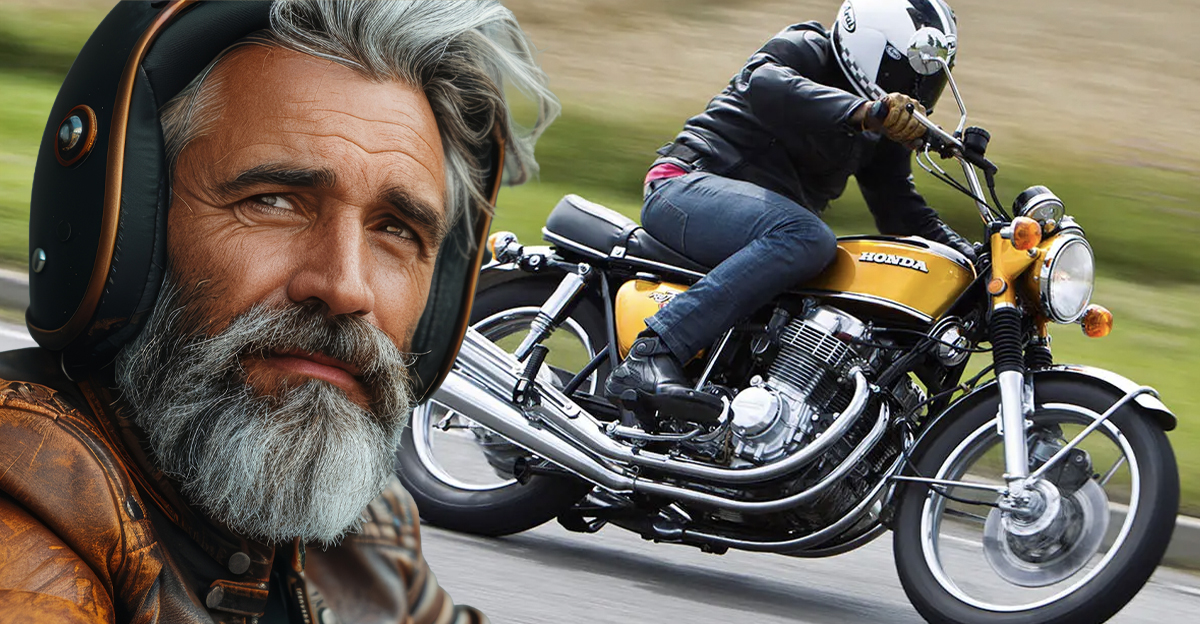
Honda CB750 (1969)
Often credited as the world’s first “superbike,” the Honda CB750’s 736cc inline-four, overhead cam, electric start, and front disc brake stunned the market. It offered near-race performance with commuter reliability, a combo unheard of then. Affordable, smooth, and easy to maintain, it changed the way the world viewed Japanese engineering and cemented Honda’s global dominance.
BMW R90S (1976)
With its hand-painted “Daytona Orange” tank, 898cc boxer twin, and sleek wind tunnel-tested fairing, the R90S combined German engineering with sporty flair. It could hit 120 mph, handled impeccably, and introduced a new concept: a sport-tourer that looked as fast as it rode. The R90S gave BMW its first racing wins since the 50s and serious street cred.
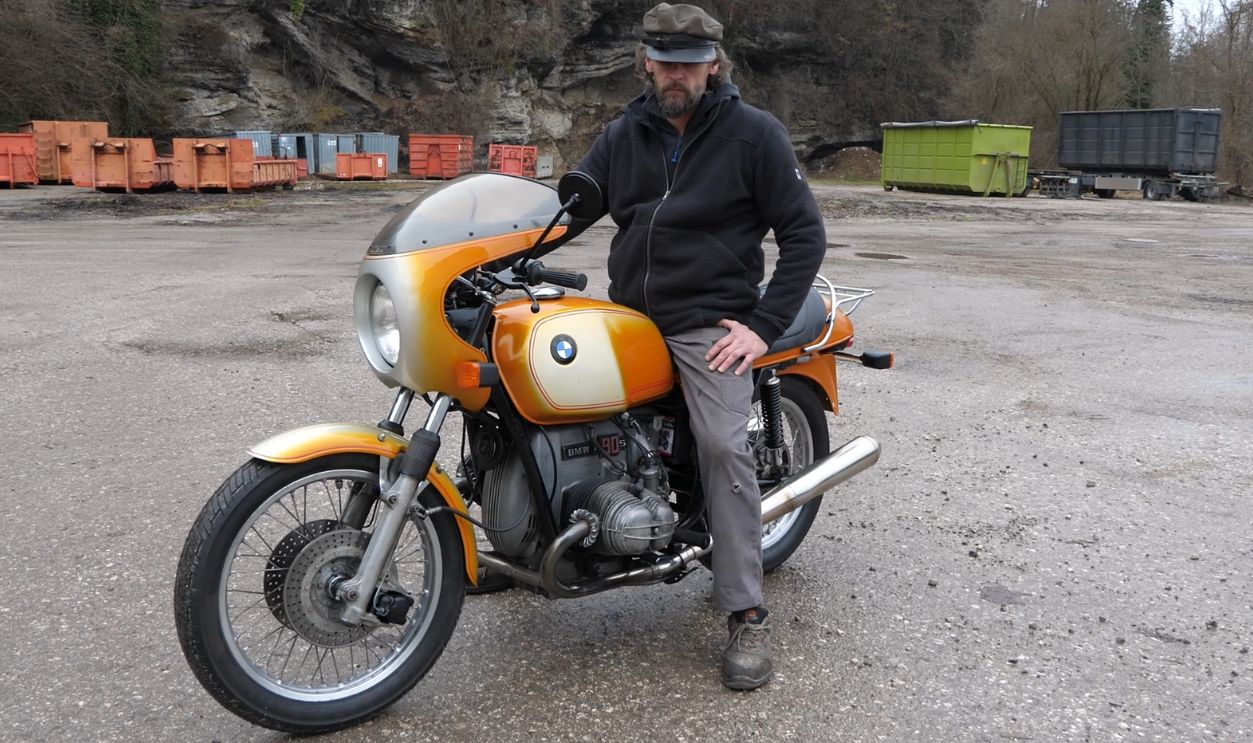 BMW R90S 1976 900cc 2 cyl ohv - starting & riding, classic-motorcycle.com
BMW R90S 1976 900cc 2 cyl ohv - starting & riding, classic-motorcycle.com
Triumph Trident 750 (1975)
The Triumph Trident’s 740cc triple-cylinder engine was Britain’s counterpunch to Japan’s superbikes. It delivered around 58 hp and 120 mph performance, wrapped in unmistakable British charm. Though it arrived late to the party, its mechanical character, throaty exhaust note, and vintage engineering made it a cult classic. Today, it’s a nostalgic reminder of when Triumph still fought for the crown.
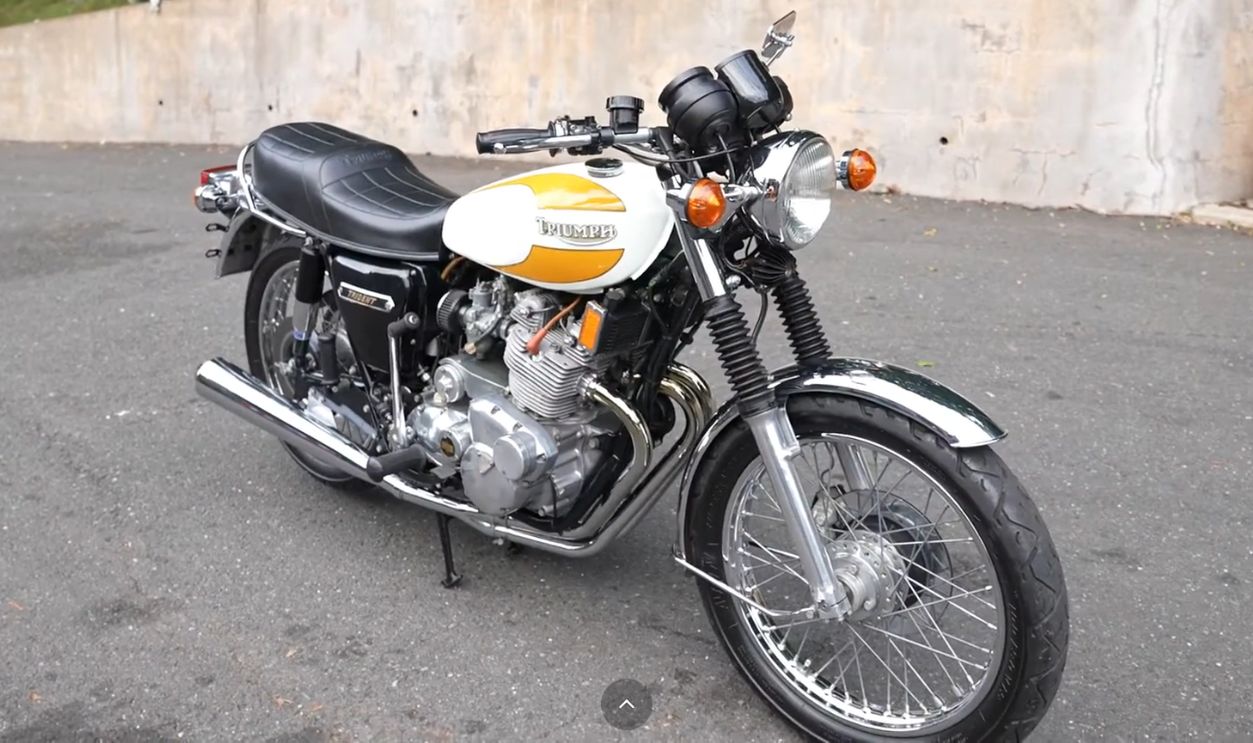 TIME CAPSULE 1975 TRIUMPH TRIDENT 750, KAPLAN AMERICA
TIME CAPSULE 1975 TRIUMPH TRIDENT 750, KAPLAN AMERICA
Harley-Davidson XR750 (1970)
Built for flat-track dominance, the XR750 quickly became the winningest bike in AMA history. Its tuned 45-degree V-twin and lightweight chassis gave it unmatched cornering control on dirt ovals. With riders like Evel Knievel and Jay Springsteen turning it into a pop-culture icon, it wasn’t just a race bike, it became the face of American motorcycling cool.
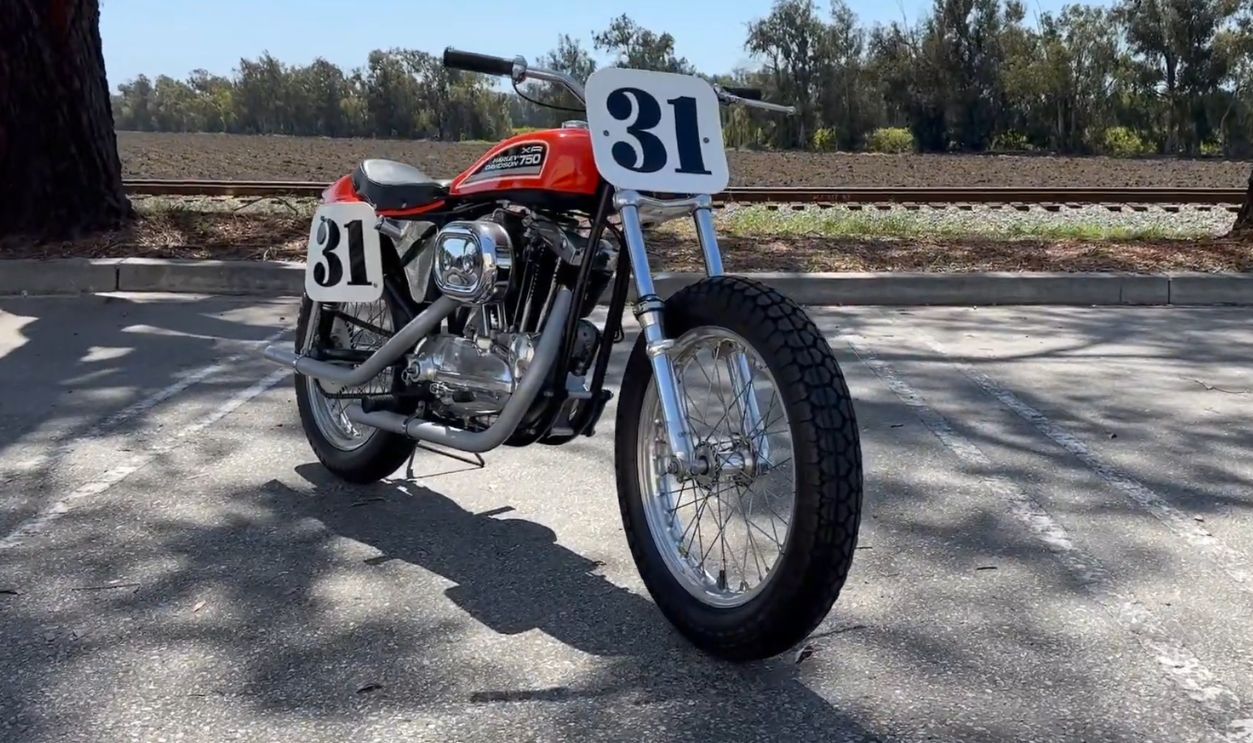 1970 Harley Davidson XR750, Classic Avenue
1970 Harley Davidson XR750, Classic Avenue
Ducati 750SS (1972)
The 750SS was Italy’s answer to speed and sophistication. Its 748cc L-twin with desmodromic valves delivered 70 hp and a soul-stirring exhaust note. Built after Ducati’s surprise victory at Imola in 1972, it embodied the brand’s racing heritage. With clip-on bars, lightweight design, and curvaceous bodywork, it was both beautiful and brutally fast: the essence of 1970s superbike glamour.
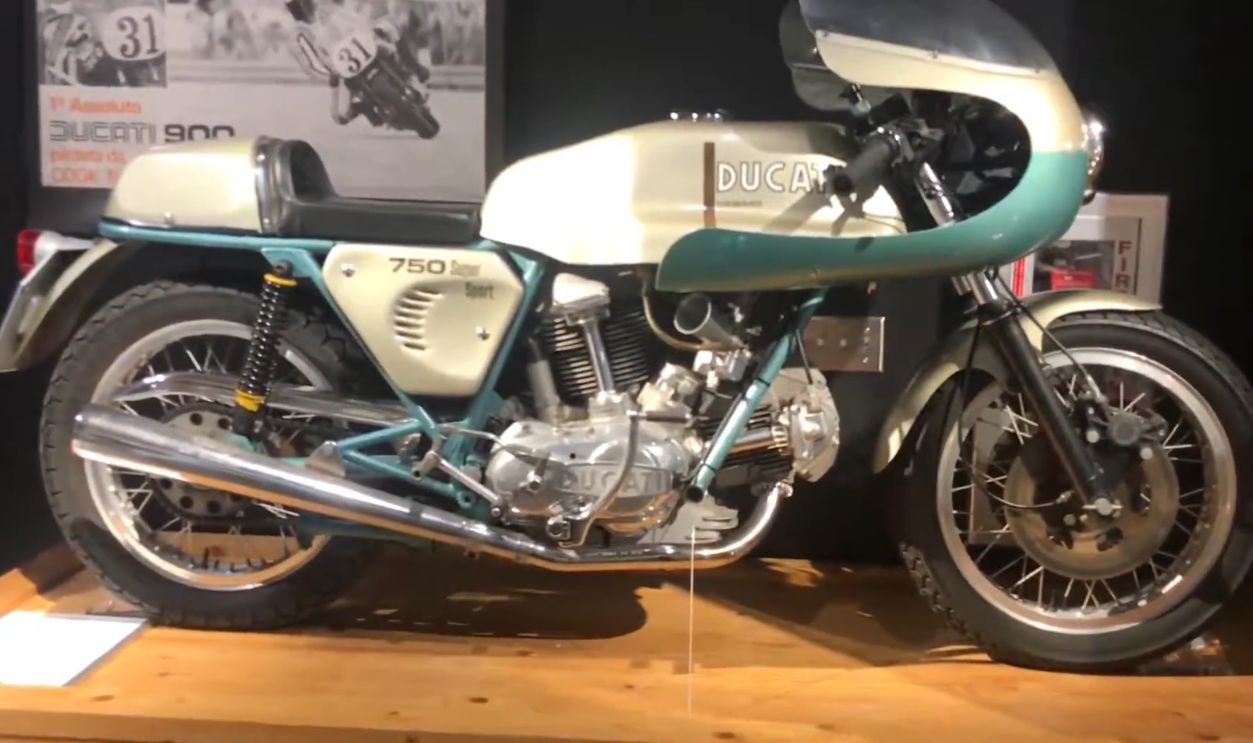 NYDUCATI: Million Dollar Motorcycle | Ducati 750SS Old Blue Replica and Imola, Tigh Loughhead
NYDUCATI: Million Dollar Motorcycle | Ducati 750SS Old Blue Replica and Imola, Tigh Loughhead
Moto Guzzi Le Mans 850 Mk I (1976)
Moto Guzzi’s Le Mans 850 brought passion and engineering in equal measure. Its 844cc transverse V-twin pumped out about 80 hp through a shaft drive and aerodynamic frame. It wasn’t just fast, it was composed, stable, and stylish. Known for incredible road manners and that signature Guzzi rumble, it proved Italian bikes could match the Japanese in performance and reliability.
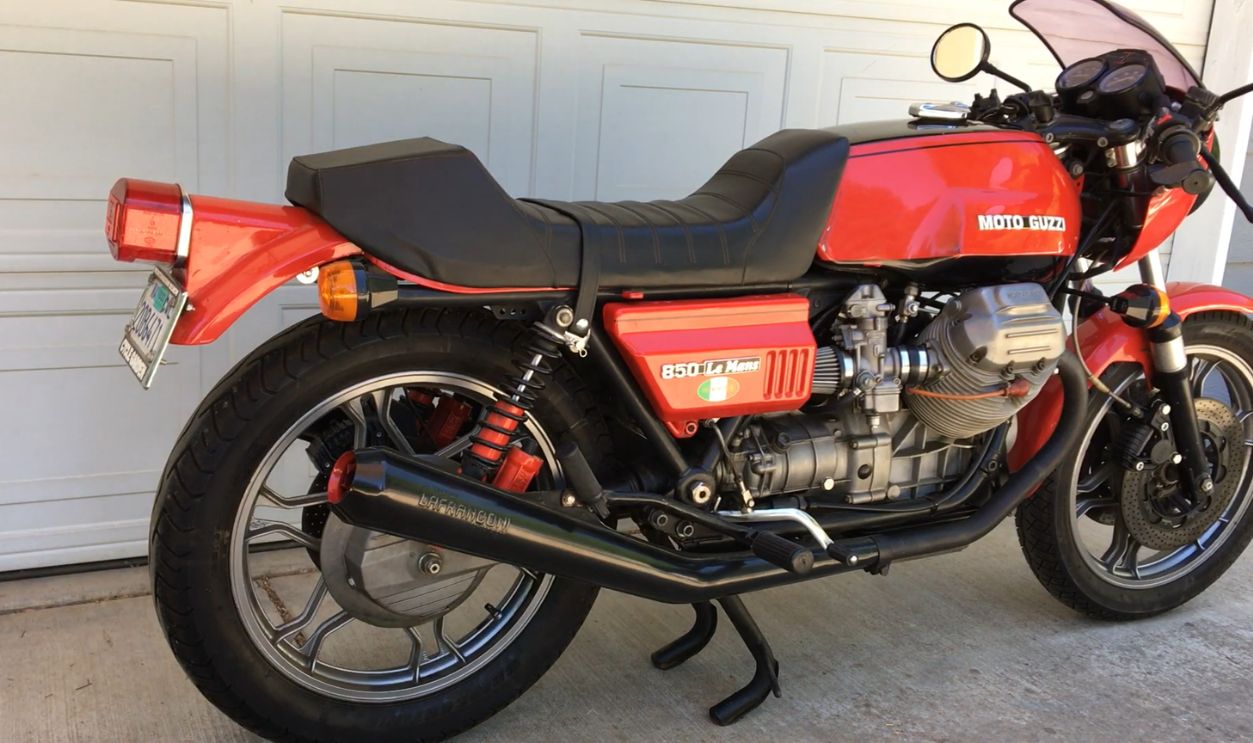 1976 Moto Guzzi 850 Lemans, Crotchety Comics
1976 Moto Guzzi 850 Lemans, Crotchety Comics
Kawasaki Z1000 (1977)
A spiritual successor to the Z1, Kawasaki’s Z1000 took everything up a notch. Its 1015cc inline-four could push past 130 mph, backed by refined suspension and aggressive styling. It became a favorite among racers, police departments, and cafe-racer builders alike. The Z1000 marked Kawasaki’s golden era: brute force wrapped in understated style and reliability.
 Steve Glover, Wikimedia Commons
Steve Glover, Wikimedia Commons
Yamaha RD350 (1973)
Compact, quick, and unapologetically wild, the RD350 defined what a two-stroke could be. With a 347cc twin punching above its weight, it produced nearly 40 hp and screamed to 8,000 rpm. Lightweight and razor-sharp in corners, it gave younger riders a taste of real performance. It was the everyman’s race bike: fast, affordable, and thrillingly dangerous.
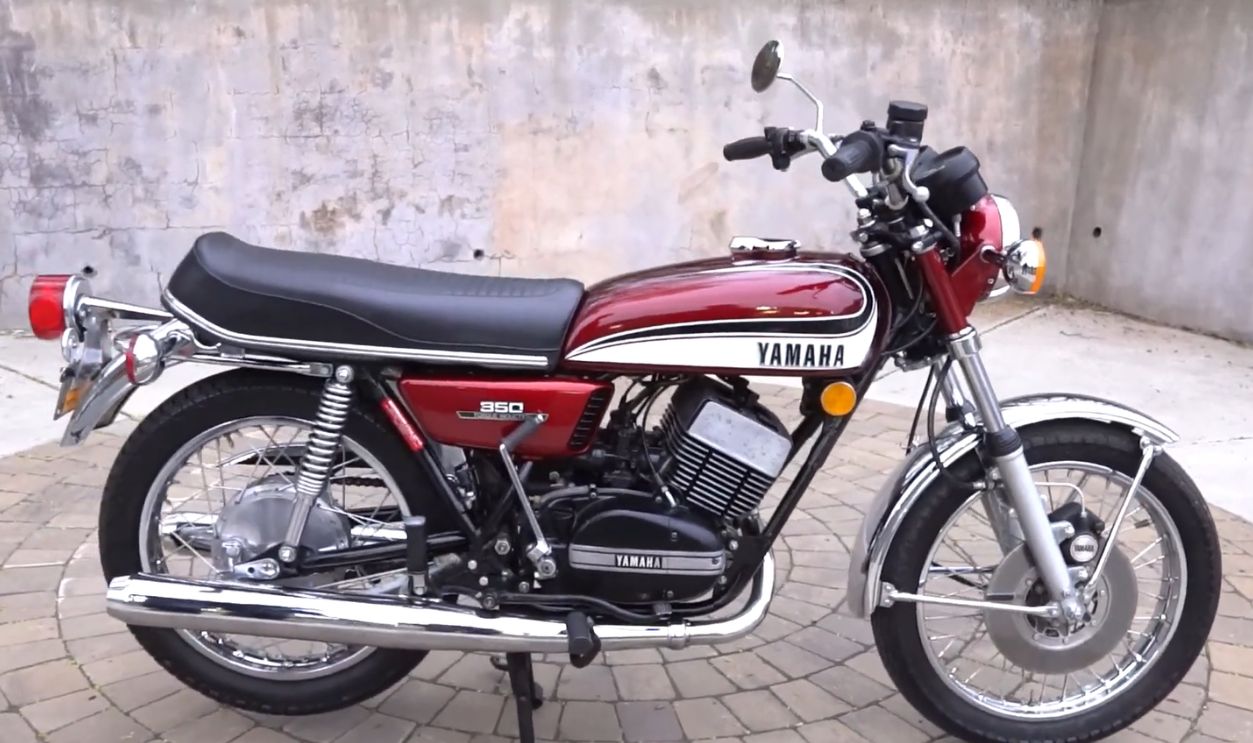 1973 Yamaha RD350, KAPLAN AMERICA
1973 Yamaha RD350, KAPLAN AMERICA
Suzuki GS750 (1977)
Suzuki’s GS750 was its first modern four-stroke and a huge step into the big leagues. Its 748cc DOHC engine offered reliability with genuine speed, and its frame provided real handling confidence. The GS series was Suzuki’s long-term ticket to the future: practical enough for daily use, yet capable of standing toe-to-toe with the best Japanese superbikes of its day.
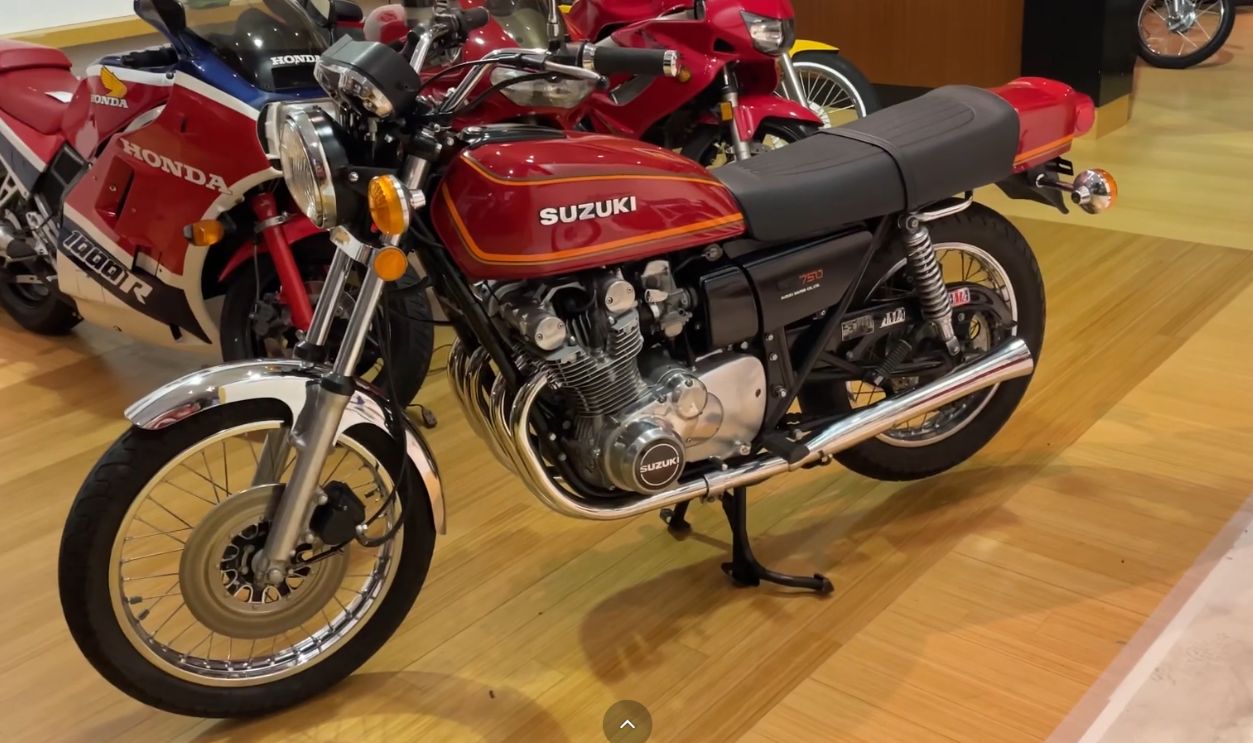 1977 Suzuki GS 750 walk around, start and run, robert craig
1977 Suzuki GS 750 walk around, start and run, robert craig
Kawasaki H2 Mach IV 750 (1972)
The “Widowmaker” nickname wasn’t a joke; this 748cc two-stroke triple delivered 74 hp and terrifying acceleration on a spindly frame. It could hit 120 mph but demanded total respect. Riders loved its raw, explosive power and distinctive blue haze. Dangerous, thrilling, and unforgettable, it embodied the wild experimentation of the early 1970s motorcycle boom.
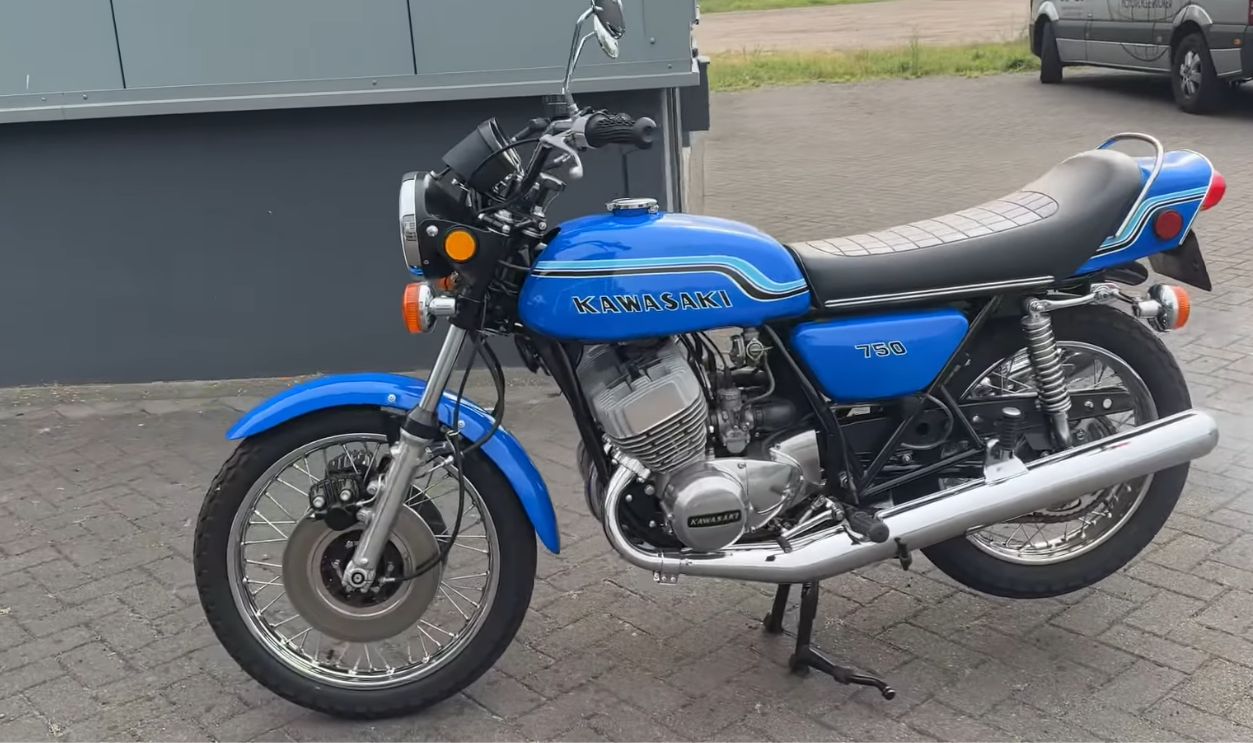 Warming up my Kawasaki H2 750 Mach IV 1972, Vintage-Motorcycles
Warming up my Kawasaki H2 750 Mach IV 1972, Vintage-Motorcycles
Honda Gold Wing GL1000 (1974)
The GL1000 turned motorcycle touring into a luxury experience. Its 999cc flat-four engine, liquid cooling, and shaft drive meant smooth miles for days. With long-haul comfort and mechanical dependability, it created an entirely new category: the “grand tourer.” Add-ons like luggage and fairings made it the bike of choice for cross-country riders, providing comfort without compromise.
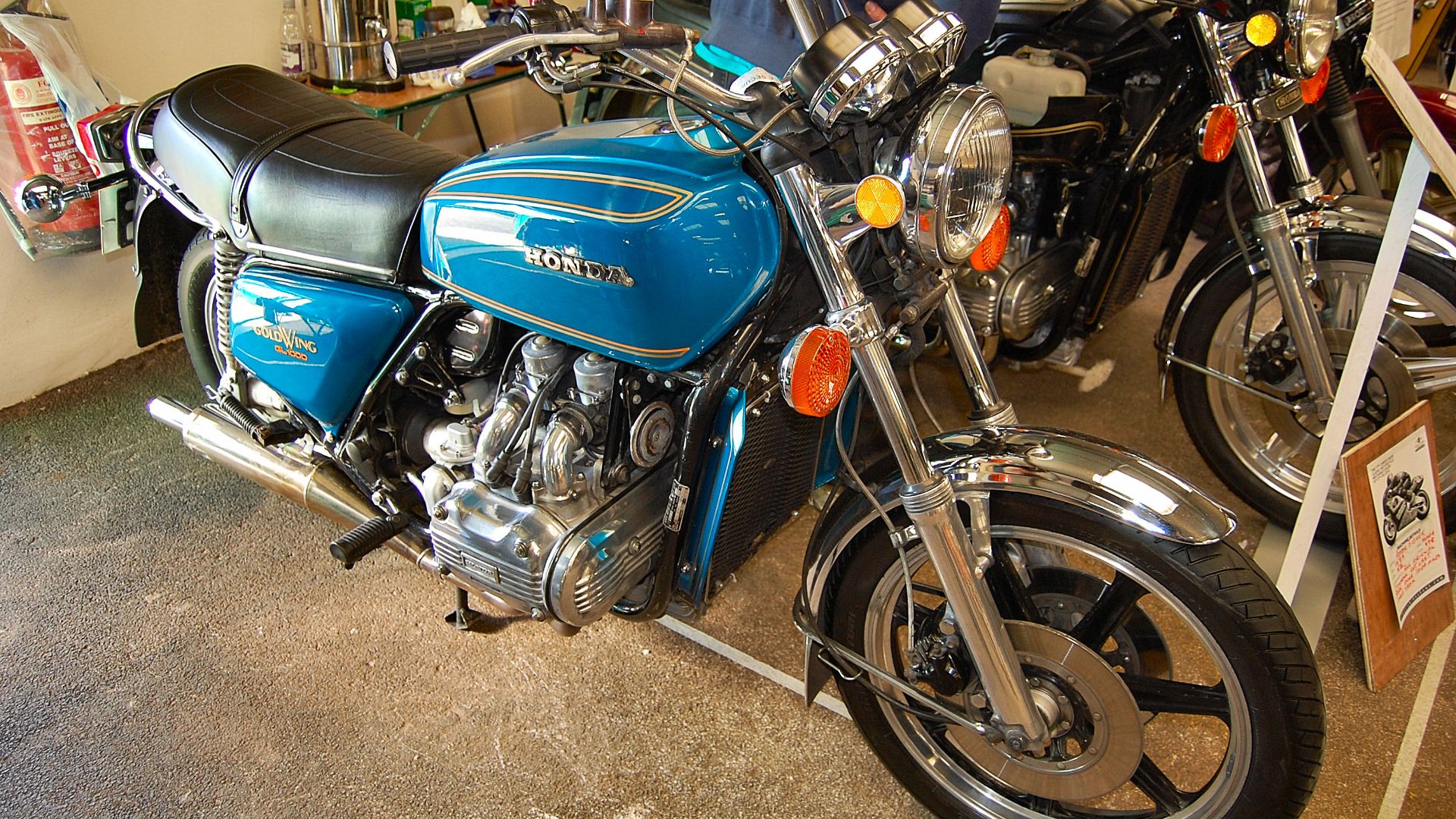 Ronald Saunders from Warrington, UK, Wikimedia Commons
Ronald Saunders from Warrington, UK, Wikimedia Commons
Norton Commando 850 (1973)
The Commando 850 improved upon the earlier 750 with an 828cc twin and Norton’s innovative “Isolastic” frame, reducing vibration dramatically. It handled beautifully, looked timeless, and earned “Machine of the Year” awards five years running. In many ways, it was Britain’s last great hurrah before Japanese dominance took over: fast, refined, and full of soul.
Harley XLH Sportster 1000 (1977)
The Sportster 1000 carried Harley’s signature swagger but added a touch more performance. Its ironhead engine put out 60 hp, and its raw, mechanical nature appealed to purists. More nimble than the big-frame Harleys, it captured the essence of the brand: tough, authentic, and unapologetically American. It remains a cult favorite for custom builders to this day.
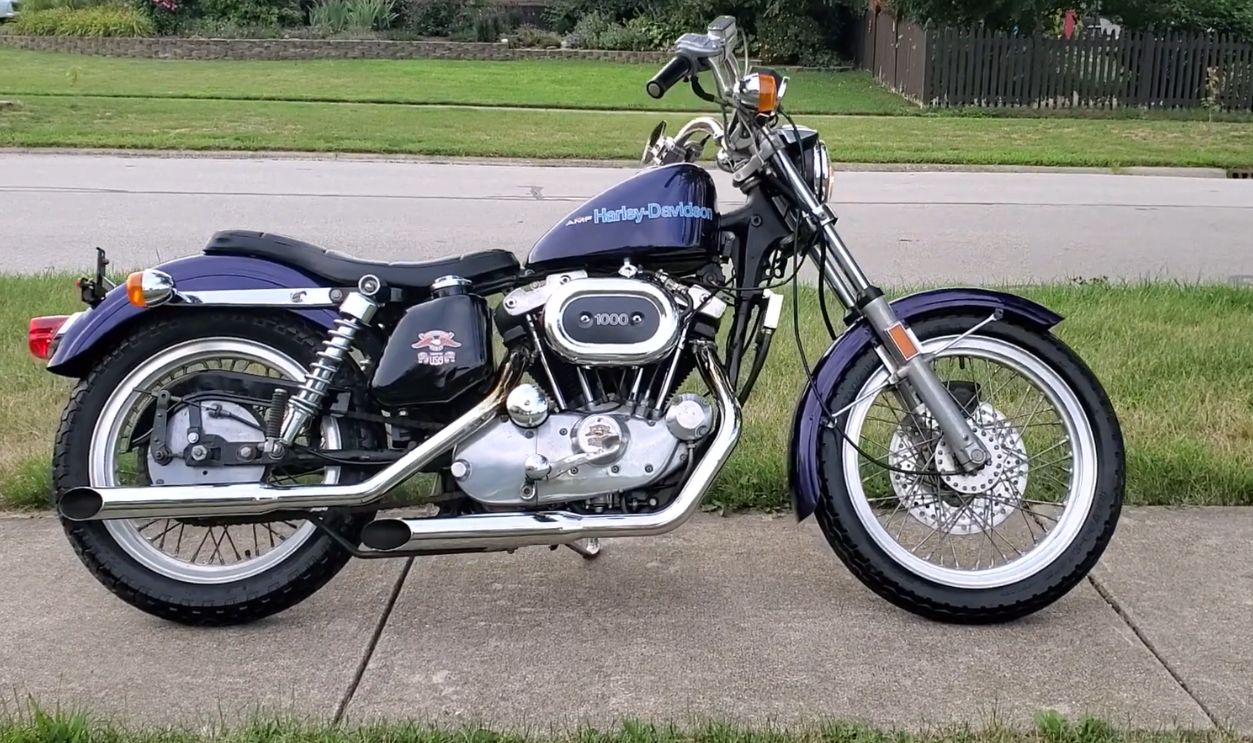 1977 AMF HARLEY DAVIDSON XLH1000 Sportster Ironhead, Motonit - Vintage Cycle Garage
1977 AMF HARLEY DAVIDSON XLH1000 Sportster Ironhead, Motonit - Vintage Cycle Garage
Suzuki GT750 (1971)
Nicknamed “The Water Buffalo” for its liquid-cooled engine (a first for Japanese bikes) the GT750’s 739cc triple delivered smooth, consistent performance and impressive power. Its futuristic design, bright colors, and sweet two-stroke sound made it a standout. It also introduced disc brakes and electric start, showing Suzuki’s knack for blending innovation with everyday rideability.
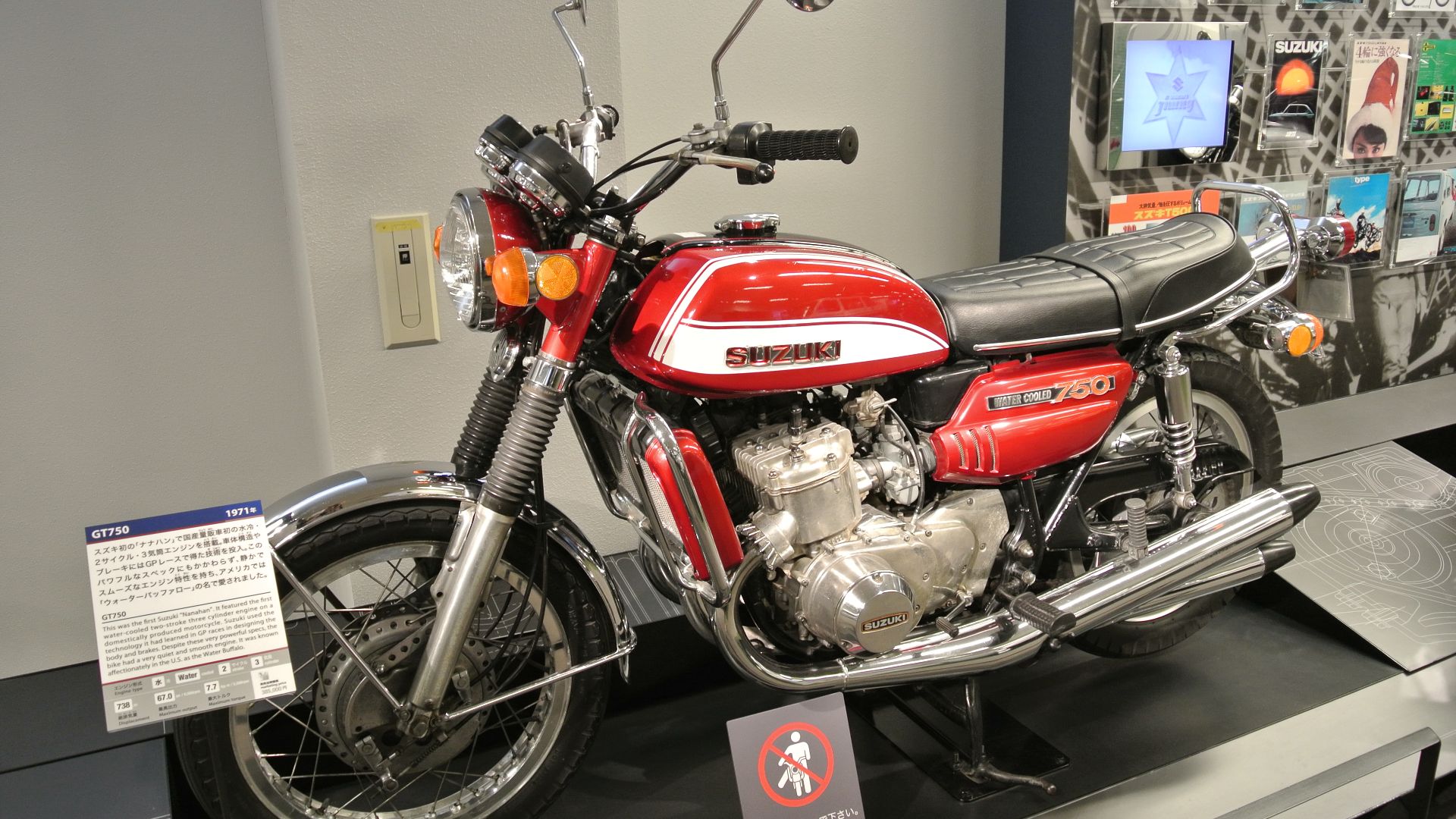 Rainmaker47, Wikimedia Commons
Rainmaker47, Wikimedia Commons
Laverda 1000 3C (1976)
The Laverda 1000 3C was an Italian powerhouse built to compete with the best from Japan. Its three-cylinder engine delivered over 90 hp, and its hand-crafted feel gave it personality in spades. With outstanding stability and endurance, it became a darling among European endurance racers. Big, bold, and brash, it was a rare classic that blended engineering and emotion perfectly.
Kawasaki Z1RTC (1978)
One of the world’s first factory-turbocharged bikes, the Z1RTC took the already-mighty Z1 and added insane boost. With up to 130 hp, it could easily outpace anything else on the street. Built in tiny numbers, it was raw, dangerous, and wildly expensive, but it set the stage for turbo mania in the early 1980s.
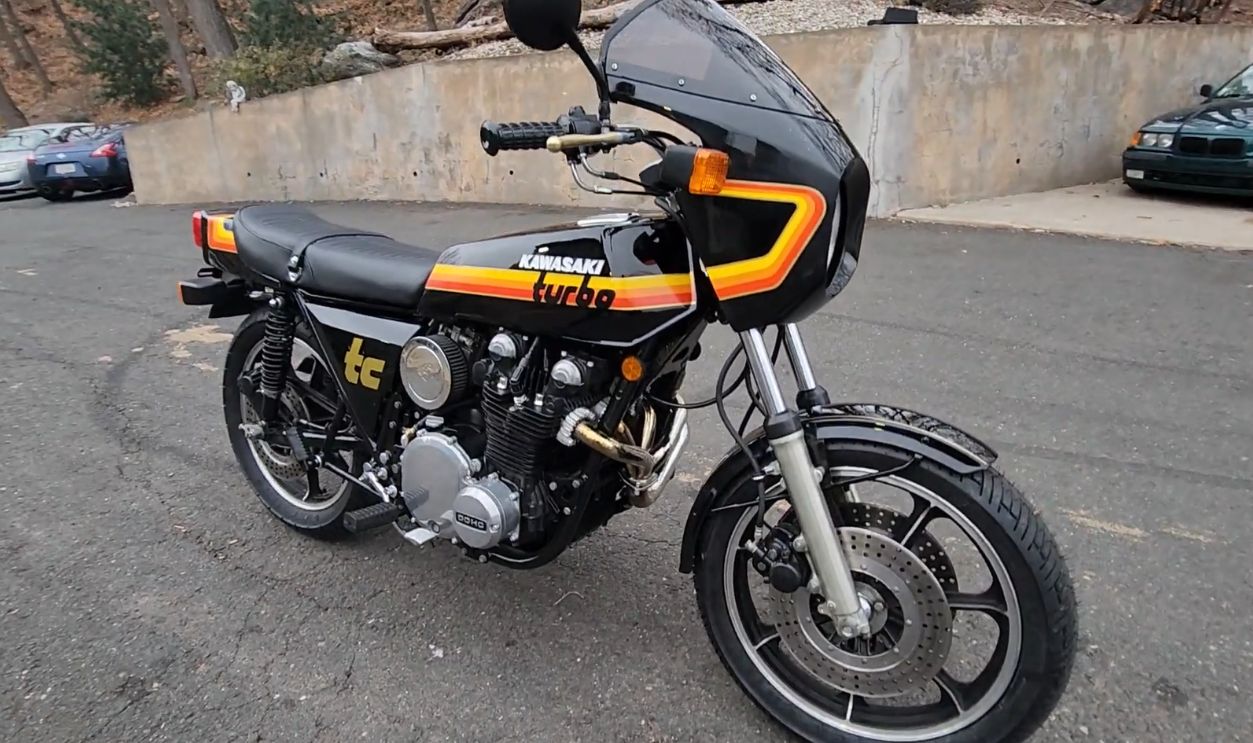 Rare 1978 Z1 Kawasaki Z1R-TC Turbo Mint One Owner Original, KAPLAN AMERICA
Rare 1978 Z1 Kawasaki Z1R-TC Turbo Mint One Owner Original, KAPLAN AMERICA
Dunstall Suzuki GS1000CS (1979)
Paul Dunstall’s British tuning magic turned Suzuki’s GS1000 into a high-performance masterpiece. Lightweight bodywork, upgraded brakes, and tuned engines pushed performance well past stock limits. The GS1000CS was part race bike, part street machine: exclusive, exotic, and ferociously fast. A fitting swan song to the decade’s obsession with speed.
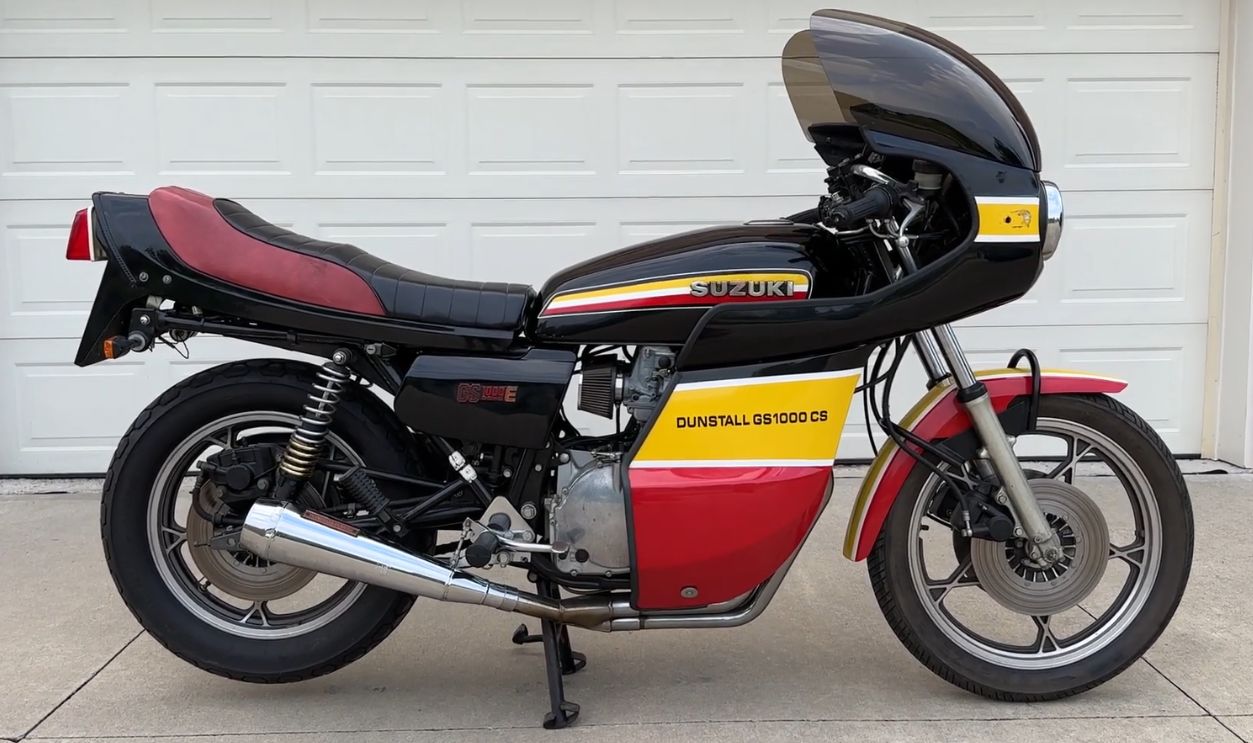 1979 Suzuki Dunstall GS1000 CS, MotorBike Shed
1979 Suzuki Dunstall GS1000 CS, MotorBike Shed
Honda CBX1000 (1978)
The CBX1000 was the stuff of legend, with a 1047cc six-cylinder monster producing 105 hp and a howl like nothing else. Its wide engine defined Honda’s engineering prowess, delivering smoothness that few could match. Despite being heavy, it handled remarkably well, and its looks made jaws drop. It was audacious, outrageous, and absolutely unforgettable.
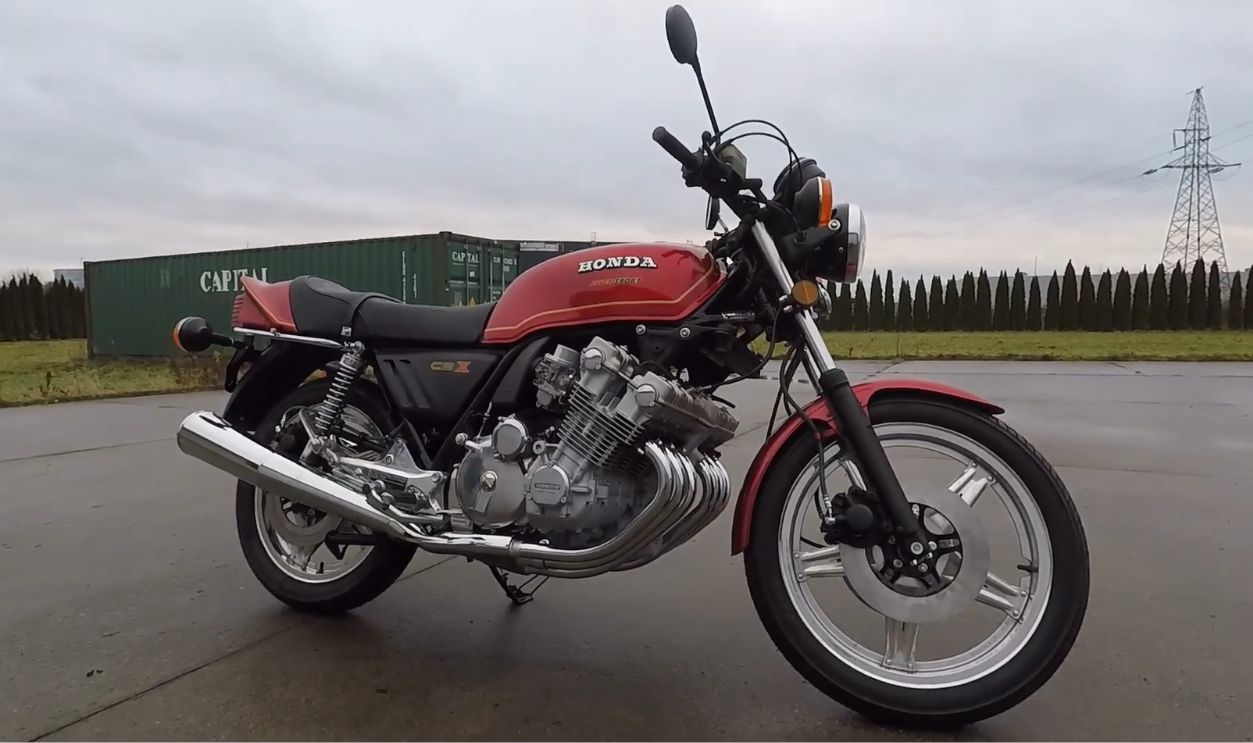 Honda CBX 1000 1978 MotoVentus.com [email protected], Moto Ventus
Honda CBX 1000 1978 MotoVentus.com [email protected], Moto Ventus
Yamaha YZ 250 (1974)
While most bikes on this list ruled the streets, the YZ 250 dominated the dirt. Its lightweight frame, snappy two-stroke engine, and nimble handling made it a motocross legend. Easy to tune, easy to love, it introduced thousands to off-road racing. Even today, the YZ lineage carries that same fearless, go-anywhere attitude born in the 70s.
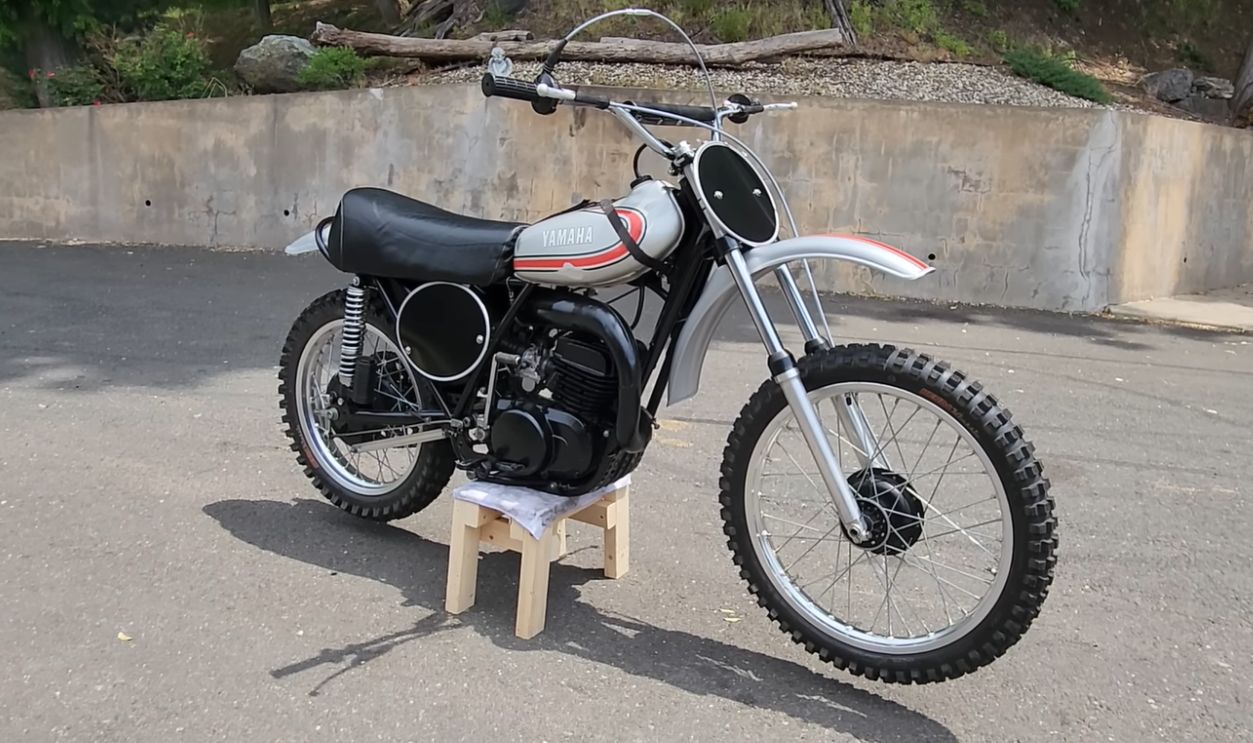 MINT STRAP TANK 1974 Yamaha YZ250A, THE FIRST YZ!, KAPLAN AMERICA
MINT STRAP TANK 1974 Yamaha YZ250A, THE FIRST YZ!, KAPLAN AMERICA
You May Also Like:
22 Legendary Motorcycles That Most People Forgot About
Motorcycles Can Sometimes Run Red Lights, But You Need To Know The Law
Keanu Reeves’ Love For Motorcycles Bleeds Into His Car Picks


